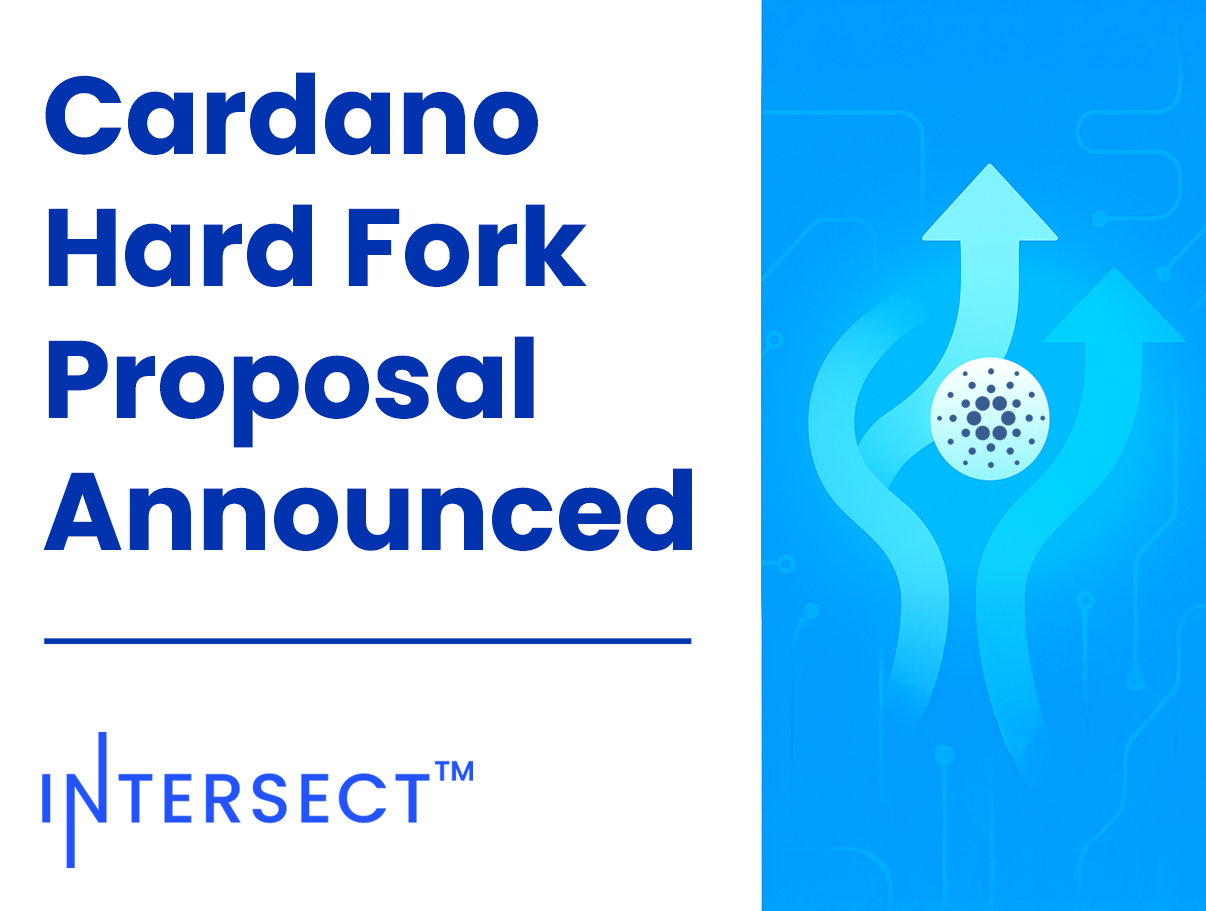Hard fork proposal announced

Intersect has been informed of a brief proposal for the next Cardano mainnet hard fork.
Following on from successful budget and treasury withdrawal actions earlier this year, a treasury-funded tranche of work related to the core Haskell node has neared completion and been identified as a candidate for a mainnet hard fork.
Intersect will host and facilitate the Hard Fork Working Group (HFWG) to coordinate and navigate ecosystem feedback and potential readiness before formal Cardano governance actions are raised for broader community consensus and approval. In essence, the working group follows much of the same processes and purpose as it did for the Chang and Plomin hardforks not so long ago.
What happens next
The hard fork working group will form and meet, bi-weekly initially, to discuss and coordinate matters related to the proposed hard fork.
This is an open Intersect working group, and anyone is welcome to join. A successful mainnet hard fork requires more than just Intersect members; it requires a whole ecosystem.
Hard Fork working group virtual event
You’re invited to the upcoming Hard Fork Working Group virtual event, taking place on Tuesday, 2 December, from 15:00 to 16:00 GMT. Join us for this focused session and take part in the discussion. You can register here!
Individuals and teams identified as having a significant impact and contributions to previous hard fork working groups will be invited directly to participate again.
The initial agenda for the hard fork working group will focus on three key points;
Impact - Understanding the effect of the proposed changes on groups and stakeholders within the ecosystem
Communication - Ensuring the changes and known impact are communicated as widely as possible and practically
Naming - It is tradition to name hard forks in Cardano after those seen as pillars of our community who have championed, influenced, and advanced the ecosystem. A suggestion will be put forward for consensus.
There will no doubt be questions of validity, the need for a hard fork, and timing. It is strongly felt that these aspects are informed by thoroughly investigating the impact and by ensuring strong communication & awareness. Once qualitative feedback is available, the working group will be better placed to discuss other such topics.
How to participate
Intersects’ knowledge base will become a public record of what's happened, what is happening, and what is next.
Intersect, as feedback is gathered via the hard fork working group, will update a number of checklists to be tracked against. These might be;
- Channels used for communications and announcements
- Dependent libraries and downstream tooling you need are ready to complete your upgrade
- Desired criteria for governance actions submission
We want the community to provide feedback on these lists!
We don't know what we don't know - our community and ecosystem changes and morphs over time. The assumptions and conclusions for Chang and Plomin may no longer be valid.
All of our hard fork-related knowledge base articles are available via this GitHub repository. If you have a suggestion or see something missing or incorrect, suggest a change!
Where to find information
Follow the working group on X/Twitter, Discord, and via these Intersect news bulletins. We will be communicating updates after every working group session.
Do you feel passionately about a particular area of the community or a topic?
Join the hard fork working group and represent your peers - we are always on the lookout for community champions to help define different parts of the ecosystem and provide unique perspectives.
Over the coming weeks, all hard fork-related information will be publicly available via the Intersect Knowledge Base here.
You can always reach the Intersect team at hard-fork@intersectmbo.org